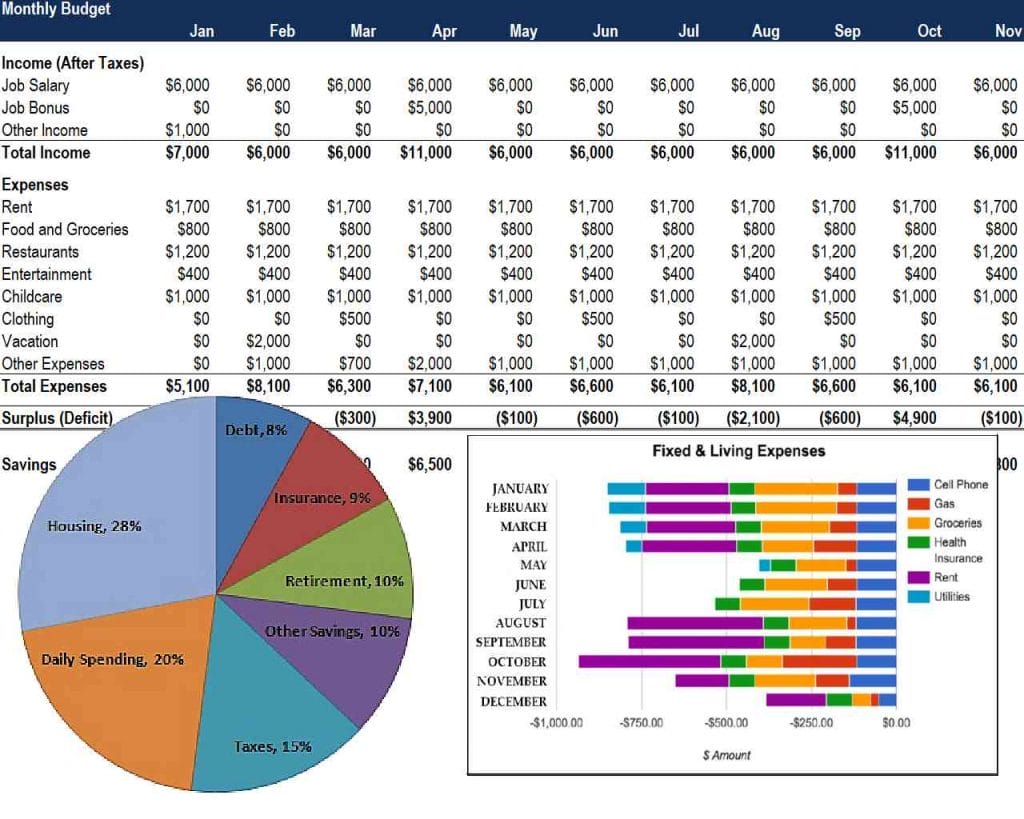
Matador Capital Partners • No Bull – Just Results!
Matador Capital Partners is a financial wellness and lifestyle consulting firm that renders the most prudent Processes and Methodologies, affording access to a sophisticated suite of Financial Strategies and Investment Portals.
We are not a financial investment company that deals in stocks and/or bonds, we are not stock brokers, nor are we a financial planning company; We are a financial and lifestyle consulting firm, that uses in-house developed, proven techniques to assist you in securing your financial future.
Our “No Bull” approach to Financial Literacy and Strategic Planning equips our clients with a robust, systematical platform that is designed to streamline financial endeavors and deliver impeccable results.
Whatever Financial Goals or Lifestyle you’re trying to achieve, Matador Capital Partners will provide you with sound advice and professional guidance every step of the way.
Our holistic approach is built upon our exclusive methodology, The 4 Quadrants of Wealth™, which is designed to help clients achieve balance across all aspects of their financial life.
The 4 Quadrants of Wealth™ is a comprehensive framework that encompasses four key areas of wealth management: income, protection, growth, and legacy. By addressing each of these areas, we help our clients achieve a balanced and sustainable financial plan that is tailored to their unique needs and goals.
Our team of experts specializes in a wide range of financial services, including advanced planning solutions, annuities, employer benefits, estate planning, executive strategies, family law, and life insurance. We also offer financial wellness management services that are designed to help you build and protect your wealth over the long term.
At Matador Capital Partners, we believe that financial education is essential to achieving financial wellness. That’s why we provide resources and tools to help you improve your financial literacy and make informed decisions about your financial future.
Contact Matador Capital Partners today to learn more about 4 Quadrants of Wealth™ methodology and how we can help you achieve financial wellness.
Planning For your Financial Future
Insurance and annuities are essential components of our approach to risk management. These financial products work together to provide financial protection for our clients and their families in the event of unexpected events. We can assist you in determining the appropriate coverage and policy that is best suited for your situation.
Annuities provide a dependable source of income during retirement. They can be used to supplement your retirement income or provide a guaranteed income stream for life. We can help you determine whether an annuity is right for you and assist you in selecting the most suitable type of annuity for your needs.
Our team of financial experts can assist you in developing an estate plan that safeguards your assets and provides for your loved ones. Additionally, we can provide advanced planning strategies that can help you reduce your tax liability and maximize your wealth.
At Matador Capital Partners, we recognize the importance of financial wellness. That is why we provide a comprehensive approach to financial strategies that goes beyond investment management. We believe that a successful financial strategy should incorporate risk management, estate planning, advanced planning, and other techniques that enable you to achieve your objectives and live the life you desire.
In conclusion, Matador Capital Partners can help you develop financial strategies to safeguard your future, whether you are just beginning to plan for retirement or seeking ways to protect your loved ones. We specialize in all aspects of financial strategies, including insurance, annuities, estate planning, advanced planning, and more. Contact us today to schedule a consultation with one of our experienced financial advisors and begin working towards your financial goals.
If you’re concerned about financial insecurity during retirement, Matador Capital Partners and their advisors can provide you with more information. Research from the U.S. Department of Labor, shows that women, Black, and Hispanic workers are more likely to experience financial insecurity during retirement. For example, women aged 65 or older are 43% more likely than men to live below the poverty level. Similarly, 17% of both Hispanics and Black Americans aged 65 or older live below the poverty line.
Many workers, particularly Black and Hispanic Americans, lack access to or do not participate in employer-sponsored retirement plans. Only 34% of Hispanic families and 44% of Black families participate in a retirement plan, compared to 60% of white families. However, Matador Capital Partners and their advisors can help workers open an IRA account or start their savings plan if their employer does not offer a plan.
It’s never too late to start planning for retirement to achieve financial security. Workers aged 55 and older can make extra contributions to their employer-based plan or IRA account. To secure your financial future, reach out to Matador Capital Partners and their advisors for more information on retirement planning and workplace benefits.
A Simple Guide to Annuities
Annuities are not just for retirees. Annuities can be used by anyone who wants to plan for their future and make investments. They are not insurance, but rather a contract between you and an insurance company that offers peace of mind in exchange for fees on your premiums. At Matador Capital Partners, our financial advisors can help you determine which type of annuity is best for your situation.
Annuities help build your retirement nest egg. Investing in annuities is an easy way to build your retirement nest egg. You can invest in an annuity at any age and for any amount, so long as you’re able to make regular contributions. Annuities are also a long-term investment that can help you save for the future while providing income through fixed payments. They offer reliable returns over time, making them an excellent option for those who want to diversify their portfolio.
Protect your earnings with a life annuity. Life annuities are an excellent way to protect your earnings and assets. They can be purchased at any age, but it’s important to research the different types of life annuities available so that you know what type of retirement income plan works best for you. Life annuities help you provide for the needs of your family as well as your legacy, giving you peace of mind knowing that your earnings are protected.
Annuities provide peace of mind. In addition to providing stability, annuities also provide a guaranteed income stream that can be used as needed throughout your life. You don’t need to worry about market fluctuations or outliving your investments. Annuities are diversified investments that protect against declines in stock prices and other risks such as inflation or interest rates. Because they are held by an insurance company rather than directly by investors, they are less susceptible to market fluctuations than traditional mutual funds or stocks.
At Matador Capital Partners, we understand that choosing the right annuity can be overwhelming. That’s why our financial advisors are here to help. We can assist you in selecting the annuity that best meets your needs and financial goals. Contact us today to learn more about how annuities can benefit you and your retirement plan.
Life insurance is a crucial safety net that many people overlook. According to recent statistics, over 100 million American adults are underinsured or without coverage. In 2022, only 50% of Americans owned life insurance, a decline from the previous year. Individuals across all income levels are less likely to have life insurance, and many believe it is too expensive or only meant to cover end-of-life expenses.
Several factors affect life insurance rates, including age, gender, smoking status, health, and medical history. In the second quarter of 2021, life insurance premiums increased by 21%, the largest year-over-year increase since the third quarter of 1987. Additionally, certain clauses and exclusions in life insurance policies should be considered, such as the suicide clause, which stipulates that the insurer will not pay out for death by suicide for a specific period.
It is important to understand the facts and statistics related to life insurance to make informed decisions about coverage needs. Many people overestimate the cost of life insurance by 300%, and 30% believe it is only meant to cover end-of-life expenses, leading to inadequate coverage. Men tend to report greater knowledge about life insurance than women, with a difference of 17%. By knowing the key information, individuals can better prepare themselves for the unexpected and protect their loved ones.
Estate Planning and You
Estate Planning: Protect Your Legacy Estate planning ensures that your wishes are carried out after your death and that your loved ones are taken care of. Our team of experts can work with you to create an estate plan that reflects your unique circumstances and goals. We can help you set up trusts for children or grandchildren, name beneficiaries for retirement accounts, and create a plan for the care of any dependents you may have.
Trusts: Protect Your Assets Trusts are an important part of estate planning and can help protect your assets from probate and minimize taxes. Our team can help you create trusts tailored to your specific needs and goals, including revocable living trusts, irrevocable trusts, and charitable trusts.
Retirement Planning: Minimize Taxes Proper estate planning can help minimize estate taxes and other taxes that your heirs may have to pay after your death. Our team of experts can help you navigate the complexities of tax planning and minimize tax liabilities. We can help you name beneficiaries for retirement accounts and create a plan that ensures your assets are distributed according to your wishes.
Probate: Avoid Time and Expense Probate is a time-consuming and expensive legal process that administers your estate after your death. Proper estate planning can help minimize the time and expense of probate. Our team can help you create an estate plan that avoids probate and ensures that your assets are distributed efficiently and effectively.
Legacy Planning: Preserve Your Legacy Your legacy is important, and proper estate planning can help preserve it. Our team can help you create a plan that ensures your assets are distributed according to your wishes and that your legacy is preserved for future generations.
In summary, estate planning is an important process that involves creating a plan for the distribution of your assets and property after your death. At Matador Capital Partners, we offer personalized estate planning services to help you protect your legacy, minimize taxes, and avoid probate. Contact us today to schedule a consultation with one of our estate planning experts.
Retirement investments through insurance are a popular way to secure your financial future. With the right policy, you can build a sizeable nest egg and receive regular income payments after you retire. One of the biggest benefits of retirement investments through insurance is that they offer a guaranteed return on investment. This means that you will receive a predetermined amount of money at the end of your policy’s term, regardless of market fluctuations or economic downturns.
Another benefit of retirement investments through insurance is that they can offer tax advantages. Depending on the policy and your location, you may be able to deduct your premium payments from your taxes, reducing your overall tax burden. Additionally, you may be able to withdraw funds from your policy without incurring taxes or penalties, as long as you follow the policy’s guidelines.
Retirement investments through insurance can also offer peace of mind. With a policy in place, you know that you are working towards a secure financial future, even if unexpected events occur. You can customize your policy to suit your specific needs and goals, whether you want to maximize your returns or prioritize stability and security. Overall, retirement investments through insurance can be an excellent way to build wealth and prepare for a comfortable retirement.
Benefits Of Advanced Planning
1. Control: Advanced planning allows you to maintain control over important decisions that affect your life and well-being, such as healthcare choices, end-of-life decisions, financial planning, and estate planning.
2. Peace of mind: By making plans in advance, you can reduce anxiety and uncertainty about the future and ensure that your wishes are known and respected.
3. Family relief: Advanced planning can relieve family members of the burden of making difficult decisions on your behalf and prevent conflicts among family members about your care and treatment.
4. Financial stability: Advanced planning can help you plan for unexpected events and expenses, avoid unnecessary costs, and protect your assets
5. Protection of assets: Advanced planning can help protect your assets from unnecessary taxes, legal fees, and other expenses.
6. Time-saving: Advanced planning can save time by avoiding delays and reducing the need for multiple appointments and consultations with professionals.
7. Legacy preservation: Advanced planning can help you preserve your legacy and ensure that your values and goals are carried out after your death.
Overall, advanced planning can provide many benefits, including control, peace of mind, family relief, financial stability, asset protection, time-saving, and legacy preservation. It can help you prepare for the future and ensure that your wishes are known and respected.
Executive employment packages are agreements that define the compensation and benefits that top-level executives will receive. These packages are typically more comprehensive and generous than those offered to regular employees, including higher salaries, bonuses, and a range of perks.
Executives may receive stock options and equity awards, giving them a stake in the company’s success. They may also receive benefits such as company cars, travel allowances, and paid memberships to exclusive organizations. Retirement benefits and severance packages are also often more generous for executives.
Executive employment packages are essential for attracting and retaining top talent in the industry. With these packages, companies can provide executives with competitive compensation and benefits that make it worthwhile for them to take on significant responsibilities and risks. This, in turn, can help drive the company’s growth and success in the long run.
Advantage of Employer Benefits
Attract and Retain Top Talent: One of the primary advantages of offering health benefits to employees is that it helps attract and retain top talent. A comprehensive benefits package that includes health insurance can be a deciding factor for many job seekers when choosing between job offers. Additionally, employees who feel valued and cared for are more likely to remain loyal to their employer.
Improved Employee Health: Offering health benefits to employees can lead to improved employee health. When employees have access to preventative care, they are more likely to catch health issues early, which can lead to quicker and more effective treatment. Additionally, regular check-ups and screenings can help prevent serious health issues from developing in the first place. When employees are healthy, they are more productive and take fewer sick days, which can benefit both the employee and the employer.
Increased Job Satisfaction: Offering health benefits to employees can also increase job satisfaction. When employees feel that their employer is invested in their well-being, they are more likely to feel valued and appreciated. Additionally, having access to health benefits can reduce stress and anxiety related to healthcare costs, which can lead to a happier and more satisfied workforce.
Cost Savings for Employers: Offering health benefits to employees can also lead to cost savings for employers. When employees have access to preventative care and early treatment, they are less likely to develop serious health issues that require costly medical interventions. Additionally, healthy employees are more productive and take fewer sick days, which can reduce the cost of absenteeism.
Improved Company Culture: Offering health benefits to employees can also improve company culture. When employees feel that their employer cares about their well-being, they are more likely to feel a sense of loyalty and commitment to the company. Additionally, having access to health benefits can create a sense of community among employees, which can lead to a more positive and collaborative work environment.
In conclusion, offering health benefits to employees has numerous advantages for both the employee and the employer. From attracting and retaining top talent to improving employee health and job satisfaction, health benefits are an essential part of a comprehensive employee compensation package. Employers who invest in their employees’ well-being are more likely to have a happy, healthy, and productive workforce, which can benefit both the bottom line and the overall success of the company.
Annuities are financial products that provide regular income payments to individuals who invest a lump sum of money with an insurance company. One way to acquire an annuity is through a life insurance policy. Life insurance annuities offer several advantages, including guaranteed income for life, tax-deferred growth, and protection from market volatility. They are an excellent option for individuals who want to ensure a steady stream of income during retirement while minimizing investment risks.
One significant advantage of life insurance annuities is the guaranteed income for life. Individuals can choose between fixed or variable annuities, depending on their preference. Fixed annuities provide a fixed rate of return, while variable annuities invest in a mix of stocks, bonds, and other assets. Regardless of the type of annuity, the payments will continue for life, which provides peace of mind and financial security during retirement.
Another advantage of life insurance annuities is the tax-deferred growth. The earnings on the annuity investment are not taxed until the individual withdraws the funds. This means that the money invested in the annuity can grow and compound over time without being reduced by taxes, which can increase the overall value of the investment. In addition, if the individual passes away, the beneficiaries receive the annuity’s remaining value without being taxed.
Family Law and You
Annuities are financial products that provide a steady stream of income for a fixed period or for life in exchange for a lump sum payment. Annuities can be used in divorce settlements to provide a source of income for one or both spouses. Annuities can also be used for estate planning purposes to transfer assets to heirs while minimizing taxes.
Retirement planning is an essential aspect of family law as it ensures that both spouses have sufficient income during their retirement years. Retirement plans can be divided during a divorce settlement, and a qualified domestic relations order (QDRO) can be used to transfer retirement benefits between spouses.
Estate planning involves creating a plan to manage and distribute assets after death. It is important to have an estate plan in place to ensure that your assets are distributed according to your wishes and to minimize the taxes owed on your estate. Family law attorneys can assist in creating estate plans and ensuring that all legal requirements are met.
Life insurance is another important aspect of family law that should be considered when creating an estate plan. Life insurance policies can provide financial security for your loved ones in the event of your death. However, it’s essential to ensure that your life insurance policy is protected and distributed properly.
One way to protect your life insurance policy is to name a beneficiary. A beneficiary is the person or entity who receives the benefits of the life insurance policy upon the policyholder’s death. It’s important to periodically review and update your beneficiary designation to ensure that your life insurance benefits are distributed according to your wishes.
Another way to protect your life insurance policy is to consider a trust. A trust is a legal arrangement that allows you to transfer your assets to a trustee who will manage and distribute the assets according to your instructions. By using a trust, you can ensure that your life insurance benefits are protected and distributed properly, and can also minimize the taxes owed on your estate.
In summary, family law encompasses a wide range of legal issues related to families and domestic relations. Annuities, retirement planning, life insurance and estate planning are all important aspects of family law that can have a significant impact on a family’s financial future. If you need assistance with any family law matter, it is important to consult with an experienced family law attorney.
Residual income is a form of passive income that is earned regularly after making an initial investment of time or money. It provides financial stability and flexibility, allowing individuals to continue earning money even if they are not actively working. Residual income also helps diversify income streams, reducing financial risk and providing a sense of security.
Moreover, residual income can be used to achieve long-term financial goals such as retirement planning or wealth creation. By investing the income generated from residual sources, individuals can build a portfolio of assets that can provide income over time, and reinvesting the income generated from residual sources can help create additional income streams and build long-term wealth.
In conclusion, residual income is a powerful tool for achieving financial security and independence. It provides a steady flow of income over time, diversifies income streams, and enables individuals to build long-term wealth. By investing in residual income sources, individuals can achieve their financial goals and live a more comfortable and flexible lifestyle.
Simple Guide to Executive Strategies
1. Salary: The salary component of an executive’s compensation package is typically the most straightforward and predictable. It is the fixed amount of money that the executive will receive annually in exchange for their services. The salary will vary depending on the industry, the size of the company, and the level of the executive position. To determine an appropriate salary for an executive, companies will often compare their compensation packages to those of other companies in the same industry and geographic region.
2. Bonuses: Bonuses are typically performance-based incentives that reward executives for achieving specific targets. The targets can be financial (such as revenue growth or profitability) or non-financial (such as customer satisfaction or employee engagement). Bonuses can be structured in many different ways, including as a percentage of salary, as a one-time lump sum payment, or as a combination of both. The amount of the bonus will depend on the level of achievement of the targets set by the company.
3. Equity: Equity in a company is ownership in the form of stocks or stock options. It is often used as an incentive for executives to work towards the company’s long-term growth and success. The amount of equity that an executive receives will depend on the level of the position, the size and stage of the company, and the executive’s performance. Equity can be structured in many ways, including as stock options that can be exercised at a later date or as restricted stock units that vest over time.
4. Benefits: Benefits are non-salary perks that are designed to attract and retain top talent. Some common benefits that are offered to executives include health insurance, retirement plans, life insurance, disability insurance, and vacation time. Benefits packages for executives are often more generous than those offered to lower-level employees.
5. Other Incentives: Companies may offer other incentives to executives, such as signing bonuses, relocation packages, education or professional development, company car or transportation allowance, membership to clubs or organizations (such as The Matador Concierge) or other perks and incentives designed to attract top talent.
It is important to note that other incentives can vary depending on the industry, the size of the company, and the preferences of the executive. It is important for companies to understand the needs and priorities of their prospective executives and tailor their compensation packages accordingly. By offering attractive compensation packages that include other incentives, companies can attract and retain top-level talent and position themselves for success in the competitive marketplace.
In summary, a compensation package for an executive should include a competitive salary, bonuses based on performance, equity in the company, generous benefits, and other incentives that make the offer attractive to the prospective executive. By offering a compelling compensation package, companies can attract top-level talent and position themselves for success.
An annuity is a financial product that provides a series of payments in exchange for a lump sum payment or a series of payments over time. Annuities are typically used as a retirement income source and can provide a guaranteed income stream for life. There are two main types of annuities: immediate and deferred. Immediate annuities start paying out immediately after a lump-sum payment is made, while deferred annuities allow the owner to accumulate funds over time and then begin payments at a later date.
Annuities can be either fixed or variable. Fixed annuities offer a guaranteed rate of return, while variable annuities allow the owner to invest in mutual funds or other investment options. Annuities may also have optional riders or features that can provide additional benefits, such as death benefits, long-term care benefits, or inflation protection.
Annuities are sold by insurance companies and are regulated by state insurance departments. Annuities may have surrender charges or fees for early withdrawals, so it is important to understand the terms of the contract before purchasing. Annuities may be taxable or tax-deferred, depending on the type of annuity and the owner’s tax situation. Annuities are not suitable for everyone and should be considered as part of a broader retirement income plan. It is important to consult with a financial advisor before making any decisions about annuities.
Make The Most of Life Insurance
Life insurance is a financial product that provides numerous benefits to both the policyholder and their beneficiaries. It is important to understand these benefits in order to make an informed decision about whether or not to purchase a life insurance policy.
Firstly, a life insurance policy provides financial security to the policyholder’s loved ones in case of their untimely demise. The policy pays out a death benefit to the beneficiaries, which can be used to cover expenses such as funeral costs, outstanding debts, and living expenses. This benefit can provide a safety net for the policyholder’s loved ones, especially if they rely on the policyholder’s income.
In addition, a life insurance policy can serve as a replacement for lost income. If the policyholder is the primary breadwinner in their family, the death benefit can provide a source of income for their beneficiaries to replace lost income. This benefit can help ensure that the policyholder’s loved ones are able to maintain their standard of living even after the policyholder’s death.
Moreover, life insurance can be used as a part of estate planning. By designating beneficiaries and specifying how the death benefit should be distributed, the policyholder can ensure that their assets are distributed according to their wishes. This can be particularly important for individuals with significant assets or complex family situations.
Another benefit of life insurance is the tax advantages it provides. Depending on the type of policy, life insurance can offer tax-free death benefits and tax-deferred cash value growth. These tax benefits can help maximize the value of the policy and minimize tax liabilities for both the policyholder and their beneficiaries.
Some life insurance policies also offer the option to take out a loan against the cash value of the policy. This can be useful in times of financial need, providing a source of low-interest borrowing that does not require credit checks or other financial qualifications.
Finally, a life insurance policy can provide peace of mind for the policyholder. Knowing that their loved ones will be financially protected in the event of their untimely death can provide a sense of security and reassurance.
In conclusion, life insurance provides a range of benefits that can be invaluable for both the policyholder and their beneficiaries. Understanding these benefits can help individuals make informed decisions about their financial planning and ensure that their loved ones are protected in case of the unexpected.
If you’re looking for a financial firm that offers a comprehensive approach to wealth management and financial wellness, Matador Capital Partners is an excellent choice. Our “No Bull – Just Results” approach to financial literacy and strategic planning means that we prioritize straightforward, effective communication with our clients, allowing you to feel confident and informed in your financial decisions. With a suite of sophisticated financial strategies and investment portals, you’ll have access to cutting-edge resources that can help you achieve your financial goals.
Our firm uses an exclusive methodology, The 4 Quadrants of Wealth™, is another reason to trust our business, professionalism and services. This framework encompasses four key areas of wealth management, including income, protection, growth, and legacy. By addressing each of these areas, we can help you create a balanced and sustainable financial plan that is tailored to your unique needs and goals.
Finally, Matador Capital Partners places a strong emphasis on financial education and literacy, providing resources and tools to help you improve your financial literacy and make informed decisions about your financial future. This commitment to education and transparency sets us apart from other firms, and demonstrates our dedication to helping their clients achieve financial wellness over the long term.













